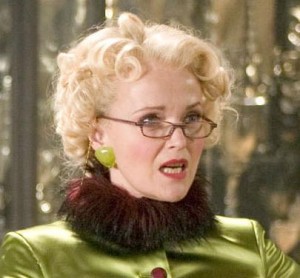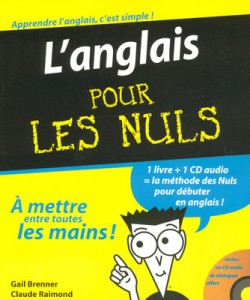I wrote a guest blog post on the London Writers’ Club blog: ‘5 Top Tips for Writing for Children‘. You can read it here!
And if you don’t know the LWC, and you’re a Londoner and a writer, make sure to check it out!
More updates soon
Clem x

I wrote a guest blog post on the London Writers’ Club blog: ‘5 Top Tips for Writing for Children‘. You can read it here!
And if you don’t know the LWC, and you’re a Londoner and a writer, make sure to check it out!
More updates soon
Clem x
Of course any press release with the words ‘Harry’ and ‘Potter’ next to each other in the headline is sure to catch the attention of journalists – and they struck gold last week with the announcement of an international academic conference, organised at the University of St Andrews, on the study of J.K. Rowling’s series ‘as literature’.
 The beautiful city of St Andrews… much better weather than when I was there!
The beautiful city of St Andrews… much better weather than when I was there!
Predictably, they found a couple of irate (and probably partly misquoted) academics from another office in the Ivory Tower, who expressed indignation at the squandering of thousands of Sickles and Galleons on such worthless endeavours.
I’d personally tend to think that in these dark days when studying the Arts & Humanities is getting more and more difficult for everyone, we should all stick together and support each other rather than deplore the fact that other academics are thinking about things that we think are not worth thinking about. But maybe that’s a very Potterish sort of altruistic attitude which you don’t cultivate if you spend all your time studying Ulysses. Ok, enough sarcasm.
I was there. The conference was a great success, because it managed to strike the right balance between true, heartfelt, endearing passion for the subject matter, and the respect, academic precision and intellectual rigour which such passion can lead to. I have to say I was a little bit worried about the potential geekiness of it all. As an unashamed potterhead, I’m more than happy to sport round glasses and hand-drawn scars at midnight releases – but that’s not what I want academic conferences to be like. Quantum physicists and Kantian scholars can make geeky jokes all they like and dress up as waves and particles if they want to – everyone takes them seriously anyway. But when your subject actually is a Mickey Mouse subject, you can’t afford to be self-deprecating about it. You have to defend it non-stop. You have to be as Sirius serious about it as it deserves.
And thankfully, despite a few Ravenclaw scarves and Gryffindor backpacks, the St Andrews conference did exactly that. Of all the presentations I went to, none were parochial, anecdotal, expected. Some were truly mind-blowing, and masterfully delivered: a jaw-dropping analysis of paternal atonement with the figure of Snape, a critique of pedagogical strategies in Hogwarts and their potential influence on the perception of learning and teaching by young readers, two sophisticated and subtle analyses of racial stereotyping using the representation of Goblins and House-Elves. In short, it was inspiring, rigorous, and not, as I’d feared, a self-indulgent gathering of fans marveling at Jo Rowling’s incontestable storytelling genius.
 If it makes people smile, that’s great – but I hope it also makes them think. It isn’t just careless, or uninformed, to dismiss the Harry Potter series as a serious object of analysis; it is intellectually dishonest. I’m sure – well, I hope – that in forty years’ time, when I nostalgically browse through my past blog posts stored in a chip directly implanted in my brain, I’ll laugh that such a conference was ever laughed at. Meanwhile, I look forward to the proceedings and thank the St Andrews people for organising such a successful event in spite of all the Rita Skeeters in the world.
If it makes people smile, that’s great – but I hope it also makes them think. It isn’t just careless, or uninformed, to dismiss the Harry Potter series as a serious object of analysis; it is intellectually dishonest. I’m sure – well, I hope – that in forty years’ time, when I nostalgically browse through my past blog posts stored in a chip directly implanted in my brain, I’ll laugh that such a conference was ever laughed at. Meanwhile, I look forward to the proceedings and thank the St Andrews people for organising such a successful event in spite of all the Rita Skeeters in the world.
Clem x
 Lauren and I have been busy recording and editing the next few episodes of our podcast on children’s literature, Kid You Not podcast – and the latest one is now online! it’s Episode 10, and it’s on Sex in Teenage Literature. Steamy. You can find it on our website, by clicking here – or just download it by clicking here – and/or follow us on iTunes!
Lauren and I have been busy recording and editing the next few episodes of our podcast on children’s literature, Kid You Not podcast – and the latest one is now online! it’s Episode 10, and it’s on Sex in Teenage Literature. Steamy. You can find it on our website, by clicking here – or just download it by clicking here – and/or follow us on iTunes!
More updates soon, on Sesame, other projects, and my academic life, once it all starts getting a little bit less hectic!
Clem x
 Editing my first manuscript in English is an amazingly different experience to editing my books in French. English isn’t my mother tongue: I started learning it, like most French kids, at school, when I was 10 years old. That means I’ll never be truly bilingual. I’m lucky enough zat I don’t have zis kind of Frrench âccent, but native English-speakers can easily tell that I’m ‘from somewhere else’.
Editing my first manuscript in English is an amazingly different experience to editing my books in French. English isn’t my mother tongue: I started learning it, like most French kids, at school, when I was 10 years old. That means I’ll never be truly bilingual. I’m lucky enough zat I don’t have zis kind of Frrench âccent, but native English-speakers can easily tell that I’m ‘from somewhere else’.
When I first arrived in Cambridge at 17 years old, I already wrote fiction in French, but I never thought I’d ever write in English. Those were days when I merrily got ‘pass out’ and ‘pass away’ mixed up (try it: great way to freak out all your friends). But then I started writing essays, reading more widely in English, and eventually felt like trying out writing fiction in English for a change. That’s when I realised that writing in a different language makes you a different person.
English and French couldn’t be more different. French is structured, rigorous, elegant, poised, inflexible – you can build endless sentences, attaching words together with cohorts of that and which and whose and whom. The subtleties of the syntax and conjugation can turn sentences into grandiose, intricately patterned works of linguistic architecture. Many words retain the length, fibrousness and complexity of their Latin ancestors. Writing in French forces you to be a rational, logical, methodical person. All the fun, the beauty and the craziness have to be grafted onto that grid of grammatical rigour.
 English is the complete opposite. It’s a language of noises, lights, colours, smells, full of wacky alliterations and tiny words, completely anarchic, almost free from conjugation, blissfully unaware of its own grammar. You turn nouns into verbs and adjectives into first names, you let them trip over themselves, you throw commas and hyphens in to help them hold on to each other. It’s a flying trapeze act – unpredictable, colourful, and just choreographed enough that things don’t go crashing into the audience too much. Writing in English forces you to be a zany juggler with an ear for music.
English is the complete opposite. It’s a language of noises, lights, colours, smells, full of wacky alliterations and tiny words, completely anarchic, almost free from conjugation, blissfully unaware of its own grammar. You turn nouns into verbs and adjectives into first names, you let them trip over themselves, you throw commas and hyphens in to help them hold on to each other. It’s a flying trapeze act – unpredictable, colourful, and just choreographed enough that things don’t go crashing into the audience too much. Writing in English forces you to be a zany juggler with an ear for music.
So I’m not just writing different stories, I’m also writing different versions of myself into those stories. And of course I’m more in control when I write in French – but then I find out more when I write in English. For example, I discovered, thanks to my editor, that my English is riddled with Americanisms – but because I probably owe them mostly to one of my best friends who’s American, it makes them a special part of my developing identity as an English speaker. The mistakes and clumsiness of my English all have a story to tell beyond the story I’m trying to tell.
And just as I know there will never be a satisfactory French equivalent for ‘glistening’, and that there will never be a satisfactory English equivalent for ‘démesure’, I know that my ‘I’ will never be quite the same as my ‘je’.
Clem
Et voilà! first post on my new English author blog. I’ve never had an author blog in English before, because I’ve never been an author in English before – so my only author blog until now was in French, like my published children’s books. And like myself (it happens to the best of us).
But sacrebleu, last year to keep myself busy I knitted a little novel-looking sort of story with the finest English wool, with characters in it and a bit of blue and green background to make it look all geek chic on windy winter days, and lo and behold, the curiousest thing has happened that has made it absolutely completely necessary and tremendously compulsory for me to start an author blog in English: a book deal. I know, I wasn’t sure they existed either. But there you go, here it is, it’s with Hodder Children’s Books, and it’s a fairly good excuse for a first blog post, I think.
And this fairly good excuse is called Sesame Seade! (though bizarrely her parents are convinced that she’s really called Sophie). Sesame is an eleven-year-old roller-skating self-made superheroine with as many connections in her brain as there are stars in the universe. She’d quite like a pet duck. Her parents aren’t keen (they won’t even consider a duckling). Professor Seade (Mum) is a Pharmacologist and Reverend Seade (Dad) is a Chaplain, and both of them are ever so slightly baffled by their wunderkind. Especially when she turns super-sleuth to investigate the mysterious disappearance of Jenna Jenkins…
And all this happens in quite a nice little corner of the world called Cambridge (which I vaguely know, I looked it up on Wikipedia once), and it’s a series of humour, mystery and adventure (all at the same time) featuring happy ducks, a yellow boat, a flock of ballet dancers, a notable absence of tangy tangerine strings, strange professors, sleepy students, and above all a hyperactive heroine with two best friends and a sometimes dangerous cat.
The first book in the series will be published in April 2013! It’s mainly for fun-loving kids who blew out eight, nine, ten or eleven candles at their last birthday party – but I’m fairly sure that reading it won’t kill anyone with better- or less-well-lit celebratory cakes.
More soon! but I promise this won’t be a blog about solely Myself and Sesame Seade. Just like my French blog, there will be A Lot More about Children’s Literature In General. Because that’s what I love.